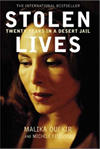 By Andrea Jeppesen
By Andrea Jeppesen1. The Alphabet Song – point to the letters as you sing
2. Find the Letters on Everyday Objects – cereal boxes, at the store, around the house
3. Alphabet Coloring Pages – for example, (http://www.dltk-teach.com/alphabuddies/mabcposter.html)
4. Letters of their Name - Start by just saying aloud the spelling of their name. If you can come up with a little song for the letters of their name then the learning is usually much faster. For example, if your child has a 5 letter name try replacing the letters of the song BINGO with the letters of your child’s name
5. Tracing Their Name – on paper, or in salt, sand, gel, fingerpaint, pudding, or shaving cream.
6. Tracing the Letters of the Alphabet – use same ideas as above
7. Playdough - roll out and make the letter (or use a toothpick to write the letter on the playdough).
8. Magnetic letters – on the fridge or cookie sheet
9. Matching Games – talk about the shapes of the upper and lower case letters. Are they the same or different?
10. Take your finger and trace the letters on the palm of the hand or on your child's back.
11. Practice using sticky notes and label objects in the house that begin with the letter.
12. Alphabet Stamps – useful for alphabet recognition, making words, and spelling
13. Eating the alphabet – form letters using vegetables, pretzels, potato sticks, and candy. Decorate cupcakes, cakes or cookies using frosting tubes to print letters. Squeeze mustard, ketchup, mayonnaise, or jelly letters out of containers to enhance your food. Try Alphabits Cereal for breakfast and name the letters.
Anderson, Sheila. Teach the Alphabet: 8 Fun Tips to Teach Your Child the Alphabet, 2009.












